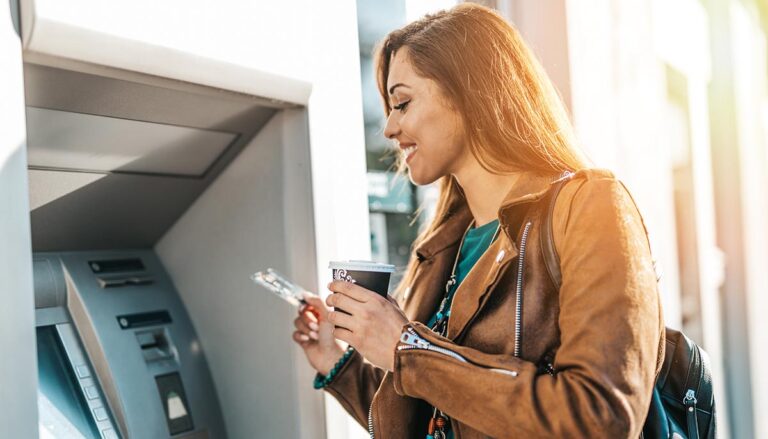A top ATM executive says cash could be phased out in five years. Physical currency is used in only 20% of all US transactions. Top think tanks are warning cash is soon to be obsolete. What happens to the poor–and to our privacy?
Cash could be phased out within five years, top experts say
In the aftermath of the pandemic, ATM and cash use are declining all around the world. The use of cashless methods of payment has become more popular. Experts say the days are numbered for cash unless steps are taken to preserve its usage.
The use of cash and coins is down 40 percent since the pandemic and still following, according to John Howells, chief executive at the UK’s cashpoint network Link, the Express reported.
The story is the same in the United States, where cash represents only 20% of all transactions, according to the Federal Reserve Bank of San Francisco.
Cashless payment methods makeup 80% of all transactions: debit (29%), credit (28%), ACH (11%), app (9%), other (9%), and mobile (3%).
The cost of providing a cash infrastructure, which includes ATMs, bank branches, and more is costly according to Howells, LADBible reported.
“This infrastructure will start to fall apart unless something is done, and we are already seeing ATMs and branches closing at a worrying rate,” Howells says. “We have 5-10 years to fix digital payments before cash becomes unworkable.”
What happens if cash becomes obsolete?
American research group The Brookings Institute issued a warning last year in an article entitled: “Cash will soon be obsolete. Will America be ready?“
“The end of cash is on the horizon, and it will have far-reaching effects on the economy, finance and society more broadly,” Brookings cautioned.
The concerns people have over digital money
When it comes to digital money people have several concerns: Will all my transactions be tracked? Can the bank “turn off” my money? Will I be charged every time I use my money?
When the financial system becomes 100% digital, it means that every single financial transaction you make through certain systems can be tracked by certain institutions.
Cryptocurrency solves a few of these problems. First, it promises more privacy, but not necessarily 100%. Transactions can be made at low or no cost, or at least pennies. It provides incredible security. Another added benefit is it might provide a hedge against inflation.
How a cashless society could hurt the poor and homeless
The first question that arises in the mind of many is how can we help the poor and homeless if there is no cash? They aren’t likely to have banking accounts, so how are we to give them money?
“A ban on cash would particularly impact the unbanked community,” FastCompany reports, acknowledging that for “poorer people, cashless transactions just aren’t practical. Prepaid credit cards are one alternative, as are vouchers.”
But the above suggestion overlooks the fact that many people who are poor and homeless also have mental conditions and may lack the necessary skills that are required to operate in the digital realm. Cash is a much easier medium in which to operate with fewer steps and requirements.





